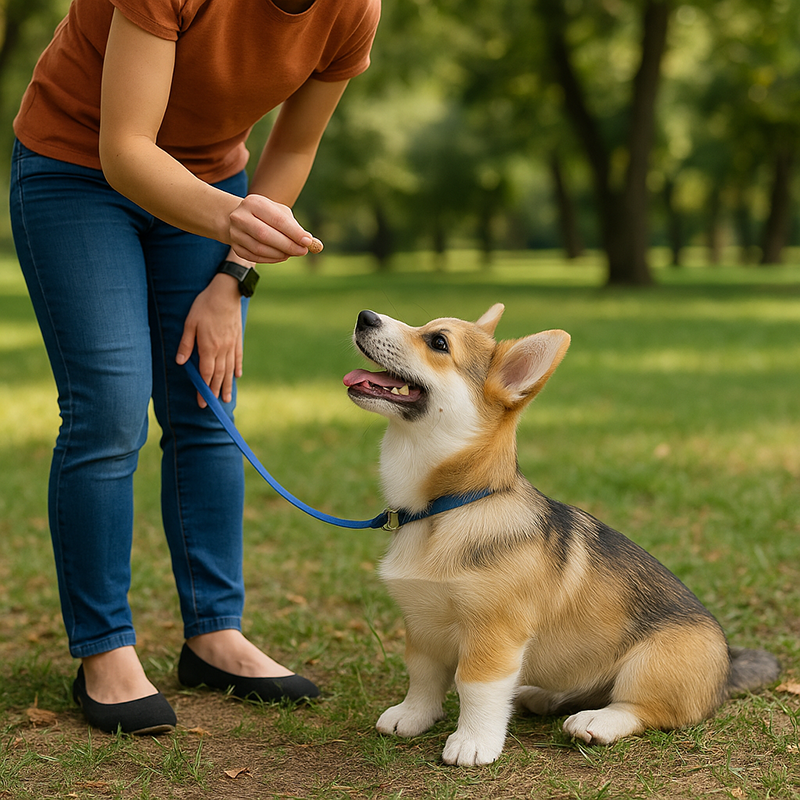
When it comes to training your dog, one method stands out above the rest — positive reinforcement. It’s backed by science, loved by trainers, and trusted by dog owners worldwide.
But what exactly is it? And how do you use it effectively?
✅ What Is Positive Reinforcement?
Positive reinforcement means rewarding your dog when they do something right. The reward could be:
- A treat
- Praise (“Good boy!”)
- A toy
- Belly rubs
- Playtime
This creates a strong association in your dog’s mind:
Good behavior = something awesome happens!
🧠 Why It Works So Well
Dogs learn best when they feel safe, confident, and motivated. Positive reinforcement:
- Builds trust between dog and owner
- Increases motivation to learn
- Reduces fear and anxiety
- Strengthens the dog’s memory of commands
- Encourages your dog to repeat good behavior
🍖 Real-World Example
Imagine you’re teaching “Sit.”
- You say “Sit.”
- Your dog does it.
- You give a treat and say “Yes!”
The result?
Your dog wants to sit again — because it pays off.
🚫 What Positive Reinforcement Is Not
It doesn’t mean:
- Letting your dog do whatever they want
- Ignoring bad behavior
- Bribing with food non-stop
Instead, it means redirecting bad behavior and reinforcing the good — consistently.
🎯 When to Use Positive Reinforcement
- During obedience training (sit, stay, come)
- When socializing with other dogs
- To reduce barking or jumping
- For crate training or potty training
- To help with leash walking and focus
🛠️ Pro Tips for Success
- Timing is everything – Reward within 2 seconds of the behavior
- Keep treats small – So training doesn’t turn into snack time
- Use variable rewards – Mix treats with praise and play to keep things exciting
- Be consistent – Everyone in the house should follow the same training approach
- Phase out treats slowly – Once behavior is consistent, reduce treats but keep praise
❤️ Final Thoughts
Positive reinforcement is more than a training method — it’s a mindset. When you reward your dog for doing the right thing, you create a positive learning experience that strengthens your bond and encourages lifelong good habits.
So grab those treats, stay patient, and turn training time into a moment of joy.
Your dog will thank you with love — and better behavior.
